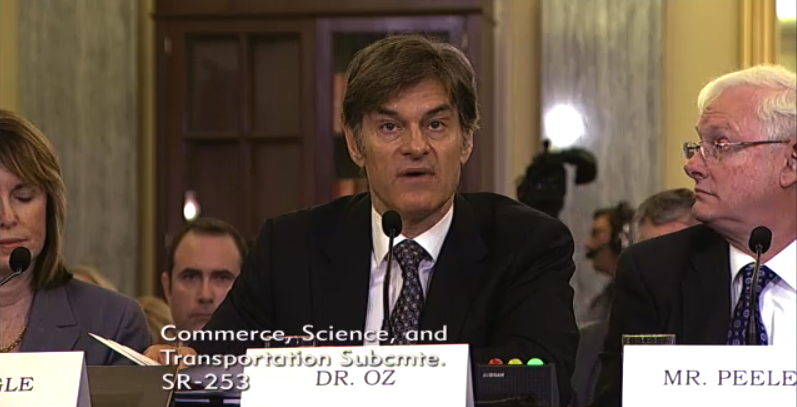Study: Only 33% Of Dr. Oz’s Recommendations Backed Up By Believable Science
The study, published last week in The BMJ, looked at 40 episodes of Dr. Oz from 2013 and investigated each of the recommendations made by the host during these shows.
Of the 80 recommendations from these episodes, researchers could only find evidence to support 46% of them. That doesn’t mean the claims are true; just that there is at least one piece of qualifying scientific evidence to support what Oz said on the air.
Interestingly, in 15% of the recommendations studied, the evidence actually contradicted Dr. Oz’s televised claims.
When researchers looked even closer at the actual evidence, the numbers sink lower, with only 33% of the doctor’s recommendations deemed to have evidence that could be labeled “believable or somewhat believable.”
Even if you disregard these stats and maintain that Dr. Oz wouldn’t recommend something he didn’t have a reason to believe was effective, there are some other numbers that may give you pause.
First off, Dr. Oz’s most frequently stated type of medical advice was dietary, as opposed to suggestions of physical exercise or seeking the guidance of a physician.
Nearly 60% of the time, Oz provided vague, immeasurable descriptions of a recommendation’s benefit, like claiming that a certain vitamin can increase your brainpower without explaining how this could happen or to what extent.
And while specific benefits were given in 40% of recommendations, fewer than 10% of Oz’s claims discussed potential harms of the advice he was giving.
“Thus, anyone who followed the advice provided would be doing so on the basis of a trust in the host or guest rather than through a balanced explanation of benefits, harms, and costs,” write the researchers.
The study also looked at medical recommendations made by another daytime chat show, The Doctors. This show fared slightly better, with 63% of claims supported by some evidence and 53% supported by evidence that holds up to some scrutiny. However, The Doctors also had an alarmingly high percentage of claims (14%) for which the evidence actually contradicted the on-air recommendations.
To wrap this all up, let’s enjoy John Oliver’s take on the Dr. Oz effect:
Want more consumer news? Visit our parent organization, Consumer Reports, for the latest on scams, recalls, and other consumer issues.


